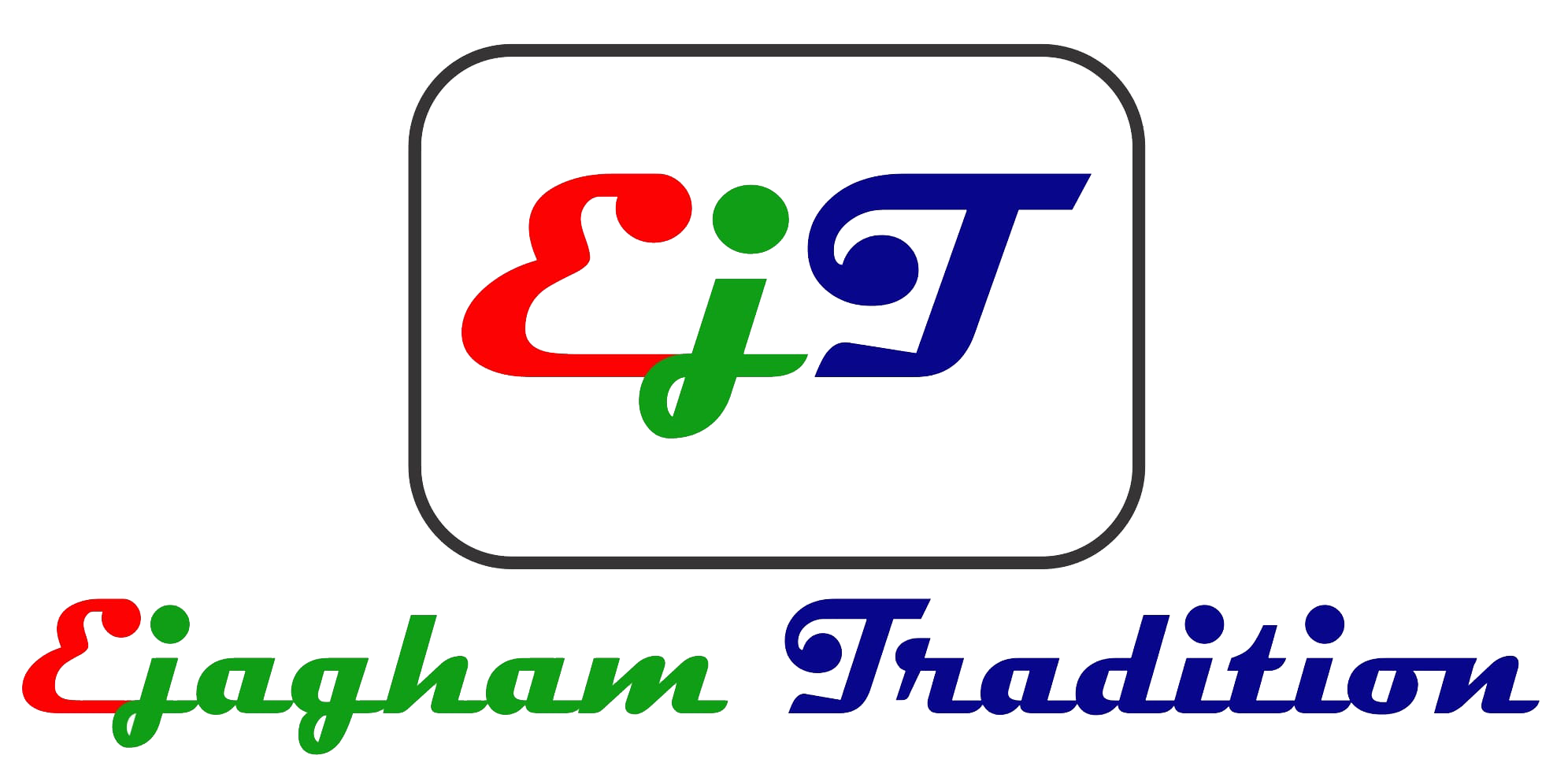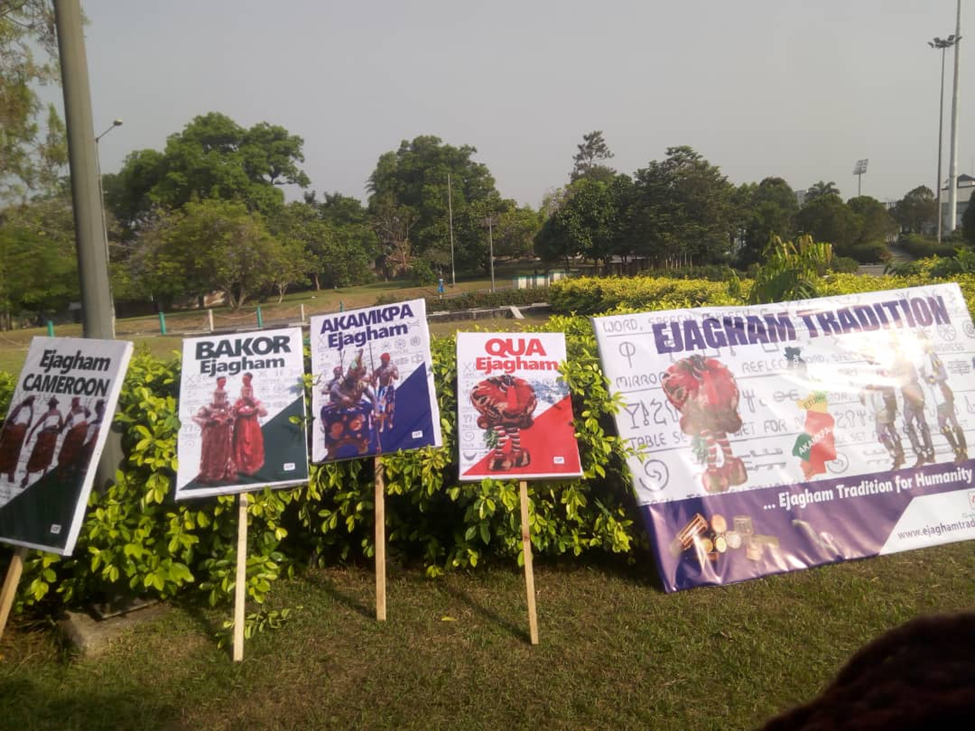During our inaugural public event, the Ejagham Tradition Talk Show 2019 held in Calabar, a newspaper covered the event and below is how they erroneously captured the essence of the discussions:
“Ejagham People Need an Identity, Group Urges.”
In subsequent discussions with our members, there was considerable resistance to the notion that Ejagham people need an identity. However, can we fault the reporter?
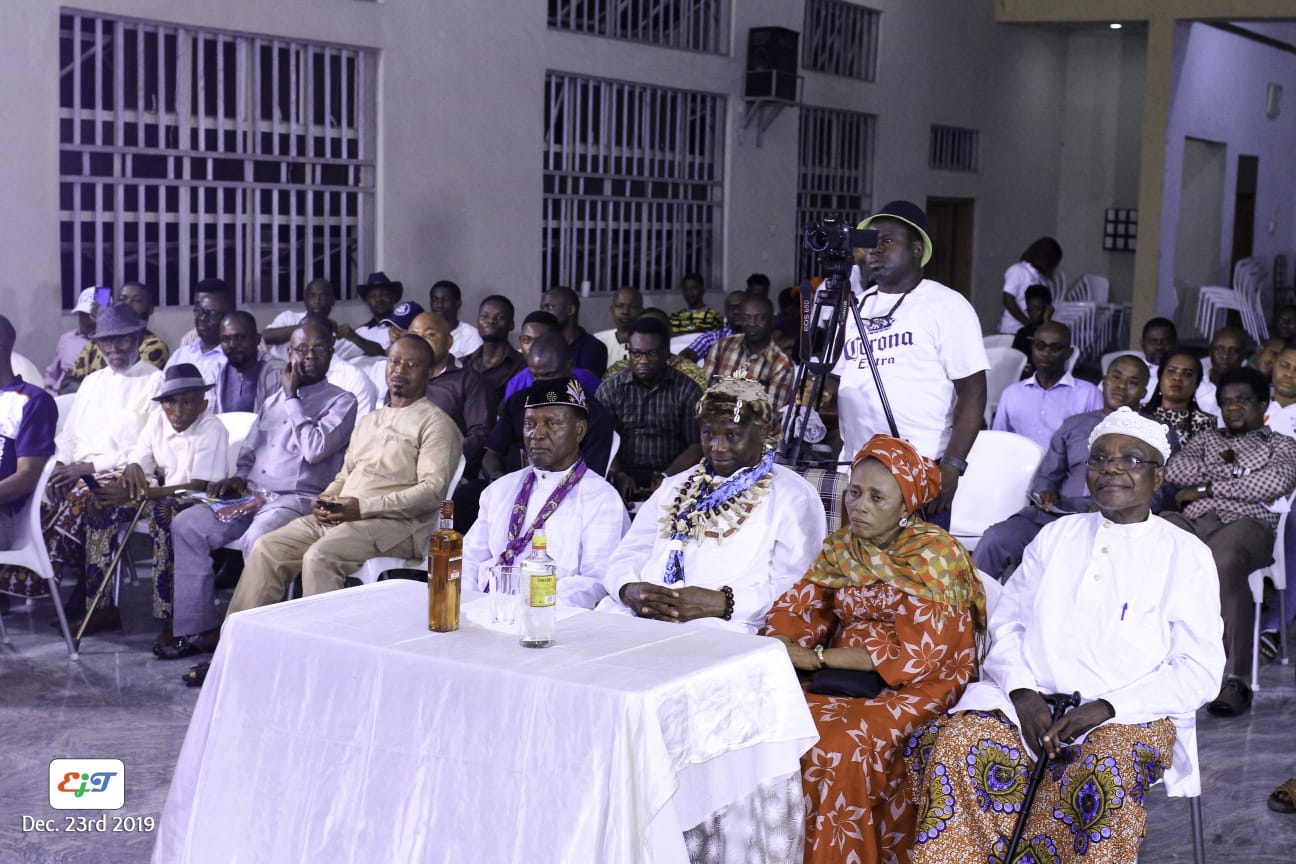
Cross-section of audience at the First ever Ejagham Talk Show in 2019
One might assume that a people who invented the Mgbe Institution – an Ejagham governance system, Nsibidi communication system, Ekad, and developed the skills and technology to produce the Akwanshi monoliths (Atae Akibansi) have their identity firmly established. Our forebears indeed set our identity in stone, but somewhere along the way, we have lost our grip.
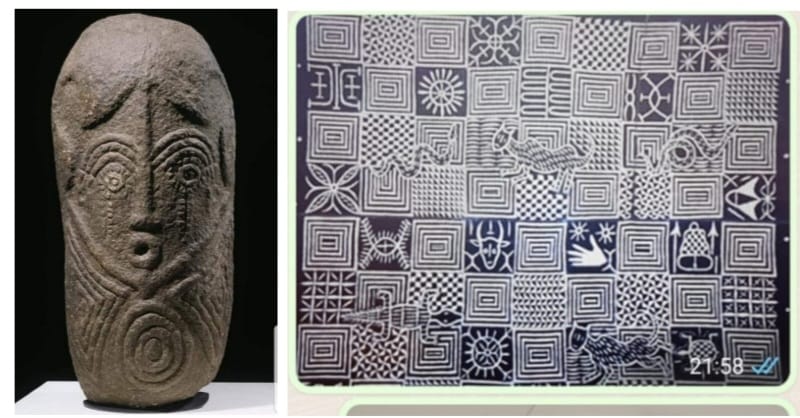
Creations of Ejagham: The Akwanshi Monolith and Ekad decorated with Nsibidi
In Cross River State, Nigeria, a group of people spans the landmass from the North to the South of the State. In Cameroon, they occupy the entire Eyumojock Sub-division. Through migration, these people have formed four distinct clusters in Nigeria and three in Cameroon. Historically, these people have either consciously or unconsciously diminished their identity as a unified group, instead projecting the cluster identity, to their collective detriment. These people are the Ejagham, and the clusters are Qua, Akamkpa, Etung, and Bakor in Nigeria and Obang, Ngunaya and Njemaya in Cameroon.
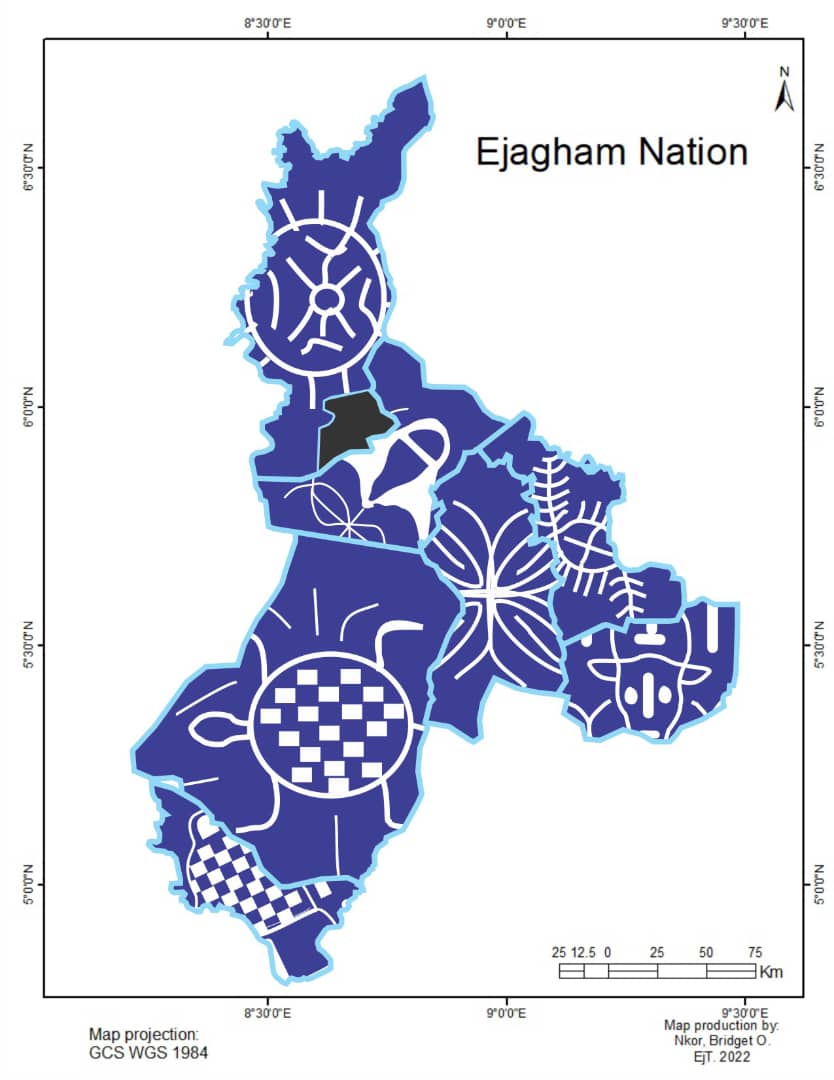
Ejagham Nation Map donned in Nsibidi signs
It is evident that other ethnic groups such as the Yorubas, Igbos, and Hausas also have different clusters but identify collectively as Yoruba, Igbo, and Hausa. This common identity brings numerous benefits, including unity and progress. It is clear why these groups are united and progressive.
EjT recognizes the deviation of Ejagham people from the principle of common identity, its impact on our communities, and the potential consequences for future generations if not addressed. We firmly believe that by rallying around our common heritage, we can restore our collective Ejagham identity as intended by our forebears. At EjT, we have begun elevating Ejagham identity by referring to our clusters as Ejagham Qua, Ejagham Akamkpa, Ejagham Etung, and Ejagham Bakor, Ejagham Obang, Ejagham Njemaya and Ejagham Ngunaya. We are Ejagham first, before the cluster, and I encourage Ejagham people to identify themselves Ejagham.
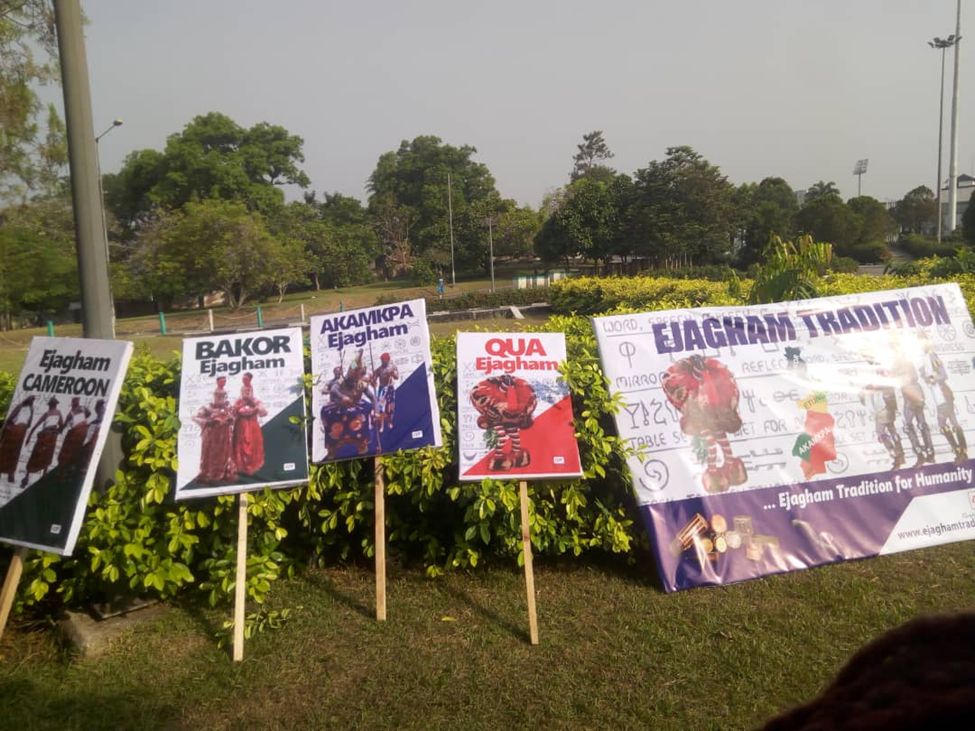
Ejagham cluster banners at Calabar Cultural Carnival 2019.
EjT is taking significant steps to promote Ejagham identity. We organized the first-ever Ejagham nation parade at the 2019 cultural festival in Calabar, Cross River State, Nigeria. This event not only showcased Ejagham identity but also demonstrated unity across the Ejagham nation.
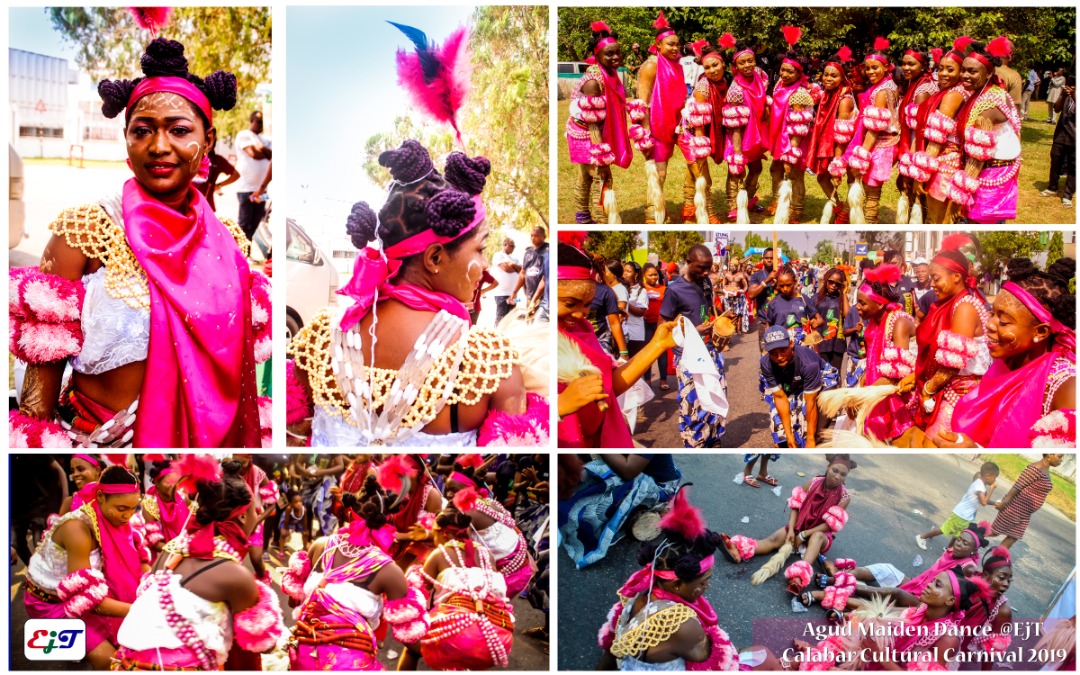
Agud Maiden Dance at Calabar Cultural Carnival 2019
Additionally, EjT is codifying the Ejagham Language to be included in the educational curriculum within the Ejagham nation. We believe that a standardized Ejagham Language orthography will foster a common Ejagham identity.
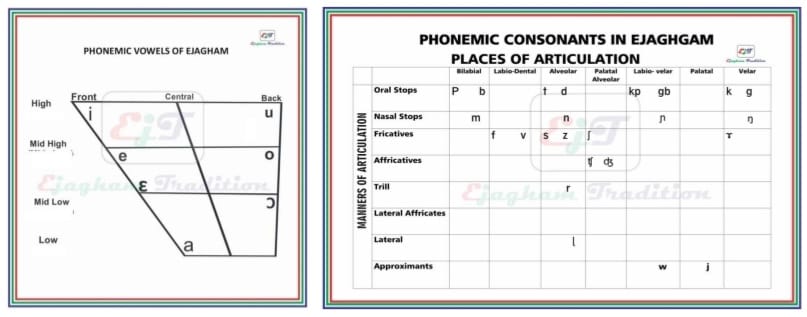
Proposed Revised Ejagham Language Orthograph Vowels and Consonants Charts
Furthermore, EjT has created an Ejagham heritage website (www.ejaghamtradition.org ) to showcase Ejagham traditional practices and cultural expressions. The website includes a social media section to build a network of friends across Ejagham nation.
So, when I asked, ” … can we fault the reporter?”, you may have answered the question in various ways. Reflect honestly on your answer.
I make a clarion call, as I have done repeatedly: If you truly care about Ejagham identity, do not remain on the side-lines. Join and/or partner with EjT – the Ejagham Identity Organisation – and help change the narrative.
Remember, we are stronger together than we would ever be divided.
Jigi jigi nne ajigha ejeh – Revere your own.
Ekup Na Nkad
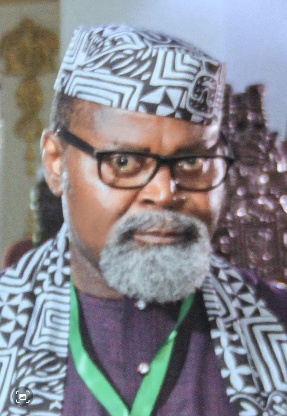
Ntufam Engr. Chris Anom CEng, CMarEng, FIMarEST, FRINA
